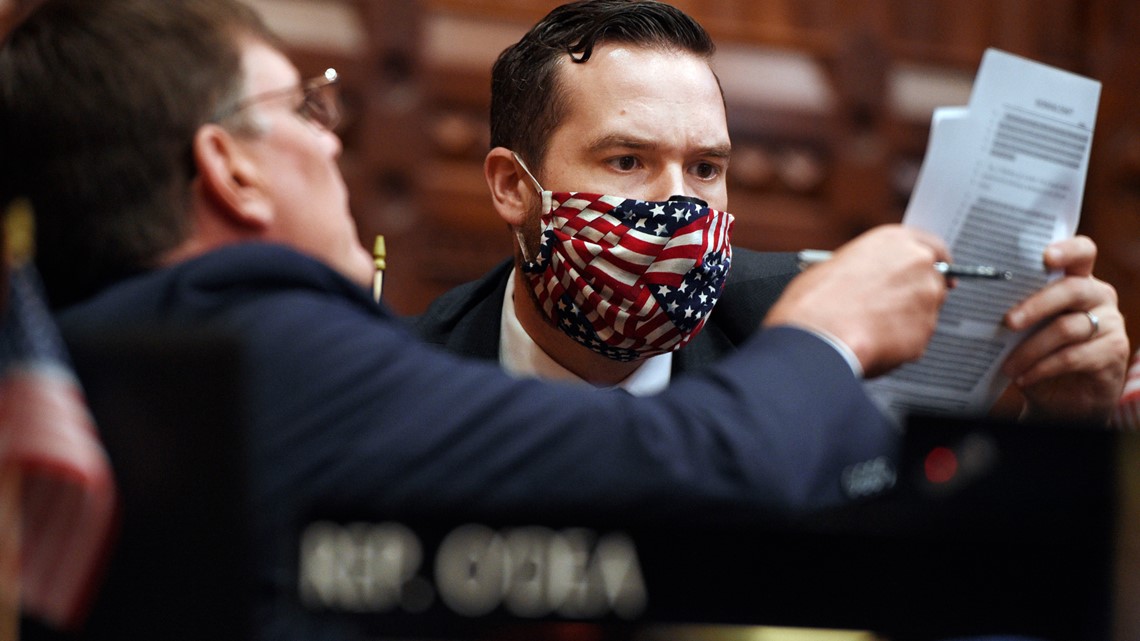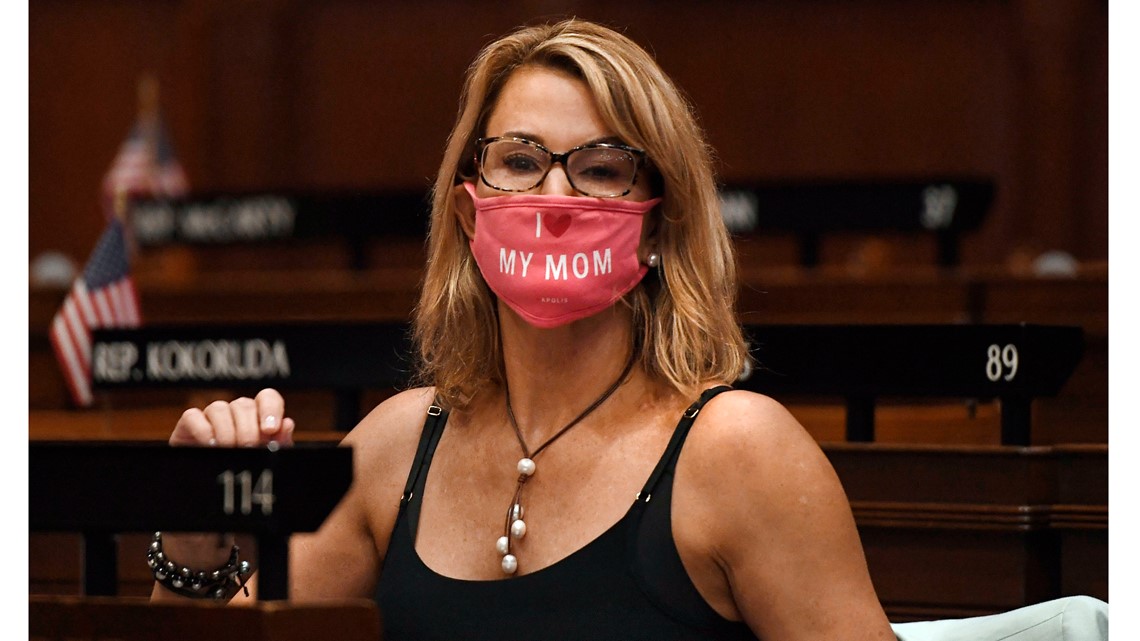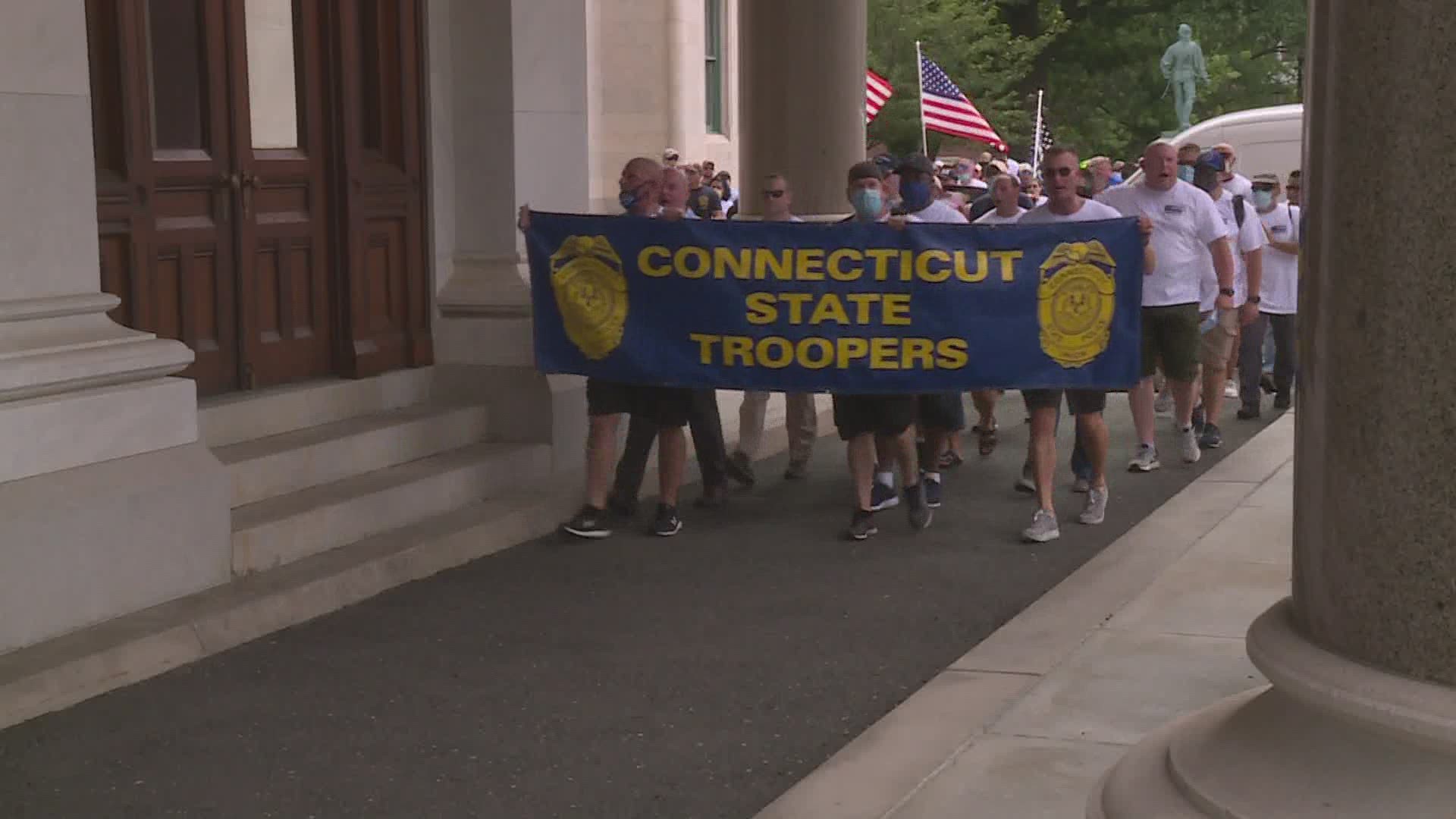HARTFORD, Conn — Lawmakers are debating four bills in a special session of the state legislature. The most controversial is police reform and accountability. It’s a 65-page bill but there is one page that will likely spark hours of debate. State legislative leaders say they have no time limit for debating the issue of qualified immunity. Some say debate may go all night before a vote is taken.
Outside the Capitol Thursday, the 1st amendment was in action as various groups protested. Inside it was democracy in action. The legislative process played out in the socially distanced 'room where it happens,' with COVID protections.


The controversial bill drafted in the wake of the death of George Floyd puts in place implicit bias training. It requires body and dash cams, prohibits use of military equipment, bans choke holds, requires officer bystander intervention and mandates mental health assessments. State Rep. Christine Conley is a Democrat serving Groton/Ledyard. She said, "I’m very pleased that there is money for body and dash cameras. The racial anti-bias training in that bill is great." The bill also expands minority recruitment. It establishes local civilian review boards, creates an office of the inspector general with subpoena power and lays the framework for a social worker response team. House Republican Leader, State Rep. Themis Klarides said, "This should go over to the task force to study it and give it the time it needs and then we should come back next session and have this conversation."


But the bill also does one other big thing. "It’s only 1 page, but it is a complicated page of the bill," said Rep. Conley. It strips officers of qualified immunity. Minority leader Klarides said, "You can sue them now. You can sue the town. You can sue people involved in it. It is fallacy that they can’t be sued if they do something but if they are acting within the scope of their job and their training that’s all we should ask of them."
Qualified immunity essentially protects an officer operating within the scope of their duty. It blocks the ability for a member of the public to sue a police officer unless that officer violates clearly established constitutional rights. Ivelisse Correra of Black Lives Matter 860 said, "If police officers follow the law they won’t have a problem. They shouldn’t have a license to break the law." Police Officer James Kodzis responded. "Reform, accountability and transparency are three very important things in law enforcement. We understand the people who are critical of our opposition to this bill and all I can tell you is that we will be there if they call us for help we will always be there for them," he said.
Republicans say many aspects of this bill were negotiated in a bi-partisan way, but they say the language keeps changing.


